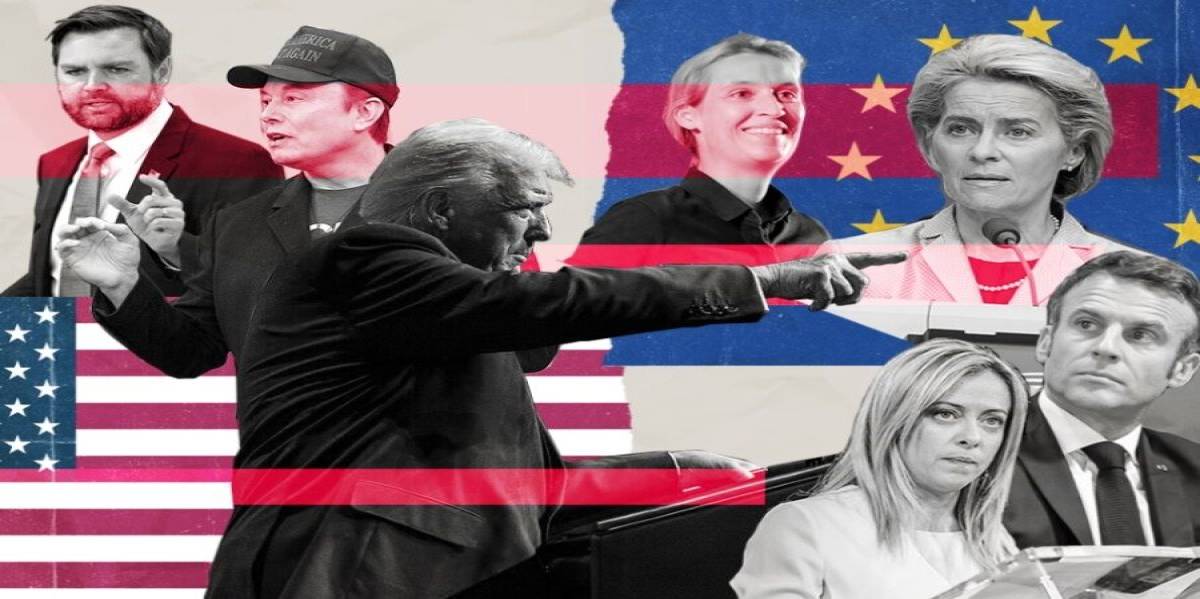1789 Views
The Digital Iron Curtain: How Trump and Far-Right Allies Are Splitting the Internet
In the evolving landscape of global digital governance, the Trump administration has taken a bold and confrontational stance against the European Union’s regulatory framework. In recent months, an internal State Department memo, signed by Secretary of State Marco Rubio, instructed U.S. diplomats across Europe to launch an extensive lobbying campaign aimed at undermining the Digital Services Act (DSA). The directive, attributed to President Trump, urged American representatives to stress the idea that the DSA allegedly restricts “freedom of speech” and imposes unnecessary costs on American tech companies. This guidance marks a significant escalation in U.S. efforts to counter EU tech regulations, framing them as threats to democratic principles and American innovation.
The Digital Services Act is a cornerstone of the EU’s strategy for regulating the online ecosystem, designed to curb the unchecked power of major tech companies. Fully implemented by 2024, it imposes obligations on platforms with over 45 million users in Europe—such as Meta, Google, and X—to actively identify and remove illegal content. This includes hate speech that could incite violence, child sexual abuse material, and disinformation that could undermine public health or elections. The law’s objectives are multifaceted: creating a safer online environment by mandating risk assessments, transparency in content moderation algorithms, and independent audits; promoting fairness by curbing targeted advertising and manipulative design patterns; and empowering users with tools to report harmful content. Proponents argue that the DSA closes regulatory gaps left by outdated laws and draws on lessons from past scandals, such as the spread of COVID-19 misinformation. By holding platforms accountable, the EU aims to protect vulnerable groups like children and minorities while balancing innovation with social safeguards. Enforcement is carried out by the European Commission, with deterrent fines of up to 6% of a platform’s global revenue.
From the Trump administration’s perspective, however, the DSA is not a protective measure but a covert tool for ideological suppression. Washington argues that the law’s broad definitions of “harmful” content serve as a pretext to silence right-wing movements, particularly in Europe, where conservative populism has been on the rise. U.S. officials claim that the EU—under the influence of left-leaning bureaucracies—disproportionately targets dissenting voices on issues such as immigration, gender ideology, and climate policy. They also contend that the DSA could affect American citizens engaged in extensive online activities beyond U.S. borders, potentially impacting global free speech. The lobbying campaign, as described in the U.S. memo, urges diplomats to engage European policymakers, business leaders, and civil society groups to oppose the law, portraying the DSA as an “unnecessary restriction” that stifles innovation and favors European competitors over American tech giants. Trump’s directive aligns with his broader “America First” agenda, which prioritizes deregulation to spur AI and technology growth, viewing EU rules as protective barriers that disadvantage U.S. companies and reinforce censorship norms.
Senior American officials have amplified this narrative through public statements and engagements. Vice President J.D. Vance has emerged as a key critic, accusing European leaders in various speeches and bilateral meetings of engaging in “censorship.” At the Munich Security Conference in February 2025, Vance condemned the DSA as part of an “authoritarian” regulatory regime that mimics total control, arguing that it undermines open discourse under the guise of safety. He repeated these views in Paris, warning that overreaching measures could kill innovation and urging Europe to dismantle such laws. Vance’s actions have gone beyond rhetoric; he has met with controversial right-wing German figures, including Alice Weidel, leader of the Alternative for Germany (AfD) party, which Germany’s domestic intelligence service has classified as a suspected far-right extremist organization. These interactions sparked sharp criticism from then-Chancellor Olaf Scholz. Such moves signal the administration’s willingness to align with fringe elements to challenge EU laws, blending diplomacy with ideological support.
The diplomatic implications of this approach could be profound, potentially straining the U.S.-EU alliance at a pivotal moment. Transatlantic cooperation is crucial on urgent issues such as AI ethics—where divergent regulations risk fragmenting global standards—cybersecurity amid growing threats from rival state actors like Russia and China, and information management to combat hybrid warfare and disinformation. This aggressive lobbying risks alienating key allies, as shown by EU officials’ resistance and warnings of retaliatory measures such as tariffs or stricter enforcement against U.S. platforms.
Critics argue that framing the DSA as censorship ignores its role in addressing genuine harms like election interference, which both sides have condemned. A strained U.S.-EU relationship could undermine joint initiatives such as NATO’s cyber defenses or AI safety frameworks, leaving vulnerabilities unaddressed. Moreover, the rift gives rivals seeking to divide the West an opportunity to promote their values as central to Western societies.
In conclusion, the Trump administration’s aggressive push against the Digital Services Act underscores the core tension between protecting free speech and tackling online harms. By framing the law as an online censorship mechanism targeting right-wing movements, the U.S. challenges the EU’s regulatory sovereignty, potentially fracturing U.S.-EU relations at a time when unity on cybersecurity and digital governance is essential. This confrontation not only tests the resilience of transatlantic ties but also shapes the future of global internet freedom, calling for dialogue to bridge ideological divides and reach a shared understanding of free speech and social rights—balancing security with progressive human values. Yet, it appears this dispute will not be easily resolved, paving the way for deeper divides between the two powers, with the upper hand determining the eventual winner of this contest.
*Translated by Ashraf Hemmati from the original Persian article written by Amin Mahdavi

Comment
Post a comment for this article